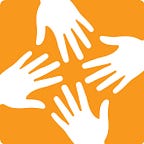Vaccinating Against HPV as a Life or Death Matter in Haiti
How to prevent the next generation of girls from suffering a painful future
“I don’t want her to die.”
These are the words translated to me from Haitian Kreyol to English last summer at a primary school in Mirebalais, a community in the Central Plateau of Haiti. Zanmi Lasante, as Partners In Health is known locally, was conducting a human papillomavirus (HPV) vaccine campaign that covered dozens of young girls over the course of three days.
Miss Pierre the woman who’d spoken to me, explained that she had been diagnosed with cervical cancer some months before and does not want her granddaughter to die of the same disease. She made sure the young girl was in school to receive the vaccine and will do her best to ensure she will be there for the second and final dose six months later. Only Pierre doesn’t know if she’ll still be alive.
Pierre’s granddaughter is one of the lucky ones. To date, Zanmi Lasante has successfully vaccinated more than 25,000 girls against HPV. While a major accomplishment, this is barely a drop in the ocean; roughly 34 percent of the Haitian population of 3.5 million is under 14. (The recommended age for HPV vaccines is 11 to 12 years old). Two other organizations, GHIESKO and St. Boniface, have vaccinated several thousand young girls in years past, but there has been no nationwide HPV campaign. By comparison, Haiti’s neighbor, the United States, has successfully vaccinated 60 percent of girls and 47 percent of boys against HPV.
Cervical cancer is a preventable disease caused by the sexual transmission of cancer-causing types of HPV infection. Worldwide, cervical cancer is the fourth most common cancer in women, but the leading cause of death from cancer for women in Haiti, according to the World Health Organization. Approximately 90 percent of deaths from cervical cancer occur in low- and middle-income countries.
In Haiti, cervical cancer is a reality for the roughly 1,500 families every year that lose a mother, daughter, aunt, or sister to an almost completely preventable disease, according to estimates by the United Nations and World Health Organization. Many of the women who come to us for care throughout our network of government-supported health facilities arrive with the disease far too advanced to survive. Our teams do the best we can to make their last days comfortable by providing palliative care. For those women who do arrive while the disease is still in its early stages, we are limited by the type of treatment we can provide. In addition to surgical procedures to eliminate cancerous areas, chemotherapy is available early on. But for cervical cancer, radiation is the best form of treatment. That option simply does not exist in Haiti right now.
Why are girls and boys not receiving this lifesaving vaccine in Haiti, where the disease burden is so high? Simply, because the Haitian government has not prioritized this health crisis, in the face of many competing priorities and a vastly limited budget. That said, in 2011, the Haitian Ministry of Health declared cervical cancer prevention a national priority, and a committee was formed in 2014 to review national cervical cancer prevention and screening guidelines.
While the government would like to see greater vaccination coverage, it struggles to meet the health needs of the Haitian population. To make matters worse, of the $2.4 billion in humanitarian relief funding from all countries following the earthquake, only 1 percent was provided to the government of Haiti, and only four-tenths of 1 percent … to Haitian NGOs.
Loune Viaud, executive director of Zanmi Lasante, respects the efforts of NGOs in Haiti that are fighting for equal access rights to HPV vaccines. She equates today’s efforts in HPV to those made by her colleagues and PIH co-founders, Dr. Paul Farmer, Dr. Jim Kim, and Ophelia Dahl, in the 1980s in HIV/AIDS detection and treatment.
“We were told 30 years ago it was impossible, and we made it possible for antiretrovirals to be available to the poorest of the poor,” Loune says. “We will achieve the same in HPV vaccines for all children in Haiti. We will one day have a national cancer center of excellence so that we can do our best to not let anyone die from cancer.”
For now, back in Mirebalais, Miss Pierre waits. Her cancer is too advanced to be treated. She takes pain medication and counts the days until her granddaughter comes in for her second dose, a day she may not see.
She reminds her daughters to get regular pap smears as a means of cervical cancer prevention, if and when they can access these services or they can pay the fees. It’s something she never received in her lifetime, but now knows could have saved her life. Like Loune, she’s optimistic that one day all children in Haiti will have access to the HPV vaccine, just like her neighbors in the U.S. It will take time — time she does not have.
Elizabeth Campa is the senior health and policy advisor for Zanmi Lasante and is currently completing an MMSc in global health at Harvard Medical School. She is ZL’s chief contact in Haiti for USAID, World Bank, and UNICEF. Her primary focus now is supporting the growth of cancer programming — particularly cervical cancer and medical education in Haiti. She writes here about cervical cancer as a significant health crisis among Haitian women and the need to provide better screening and treatment nationwide.
